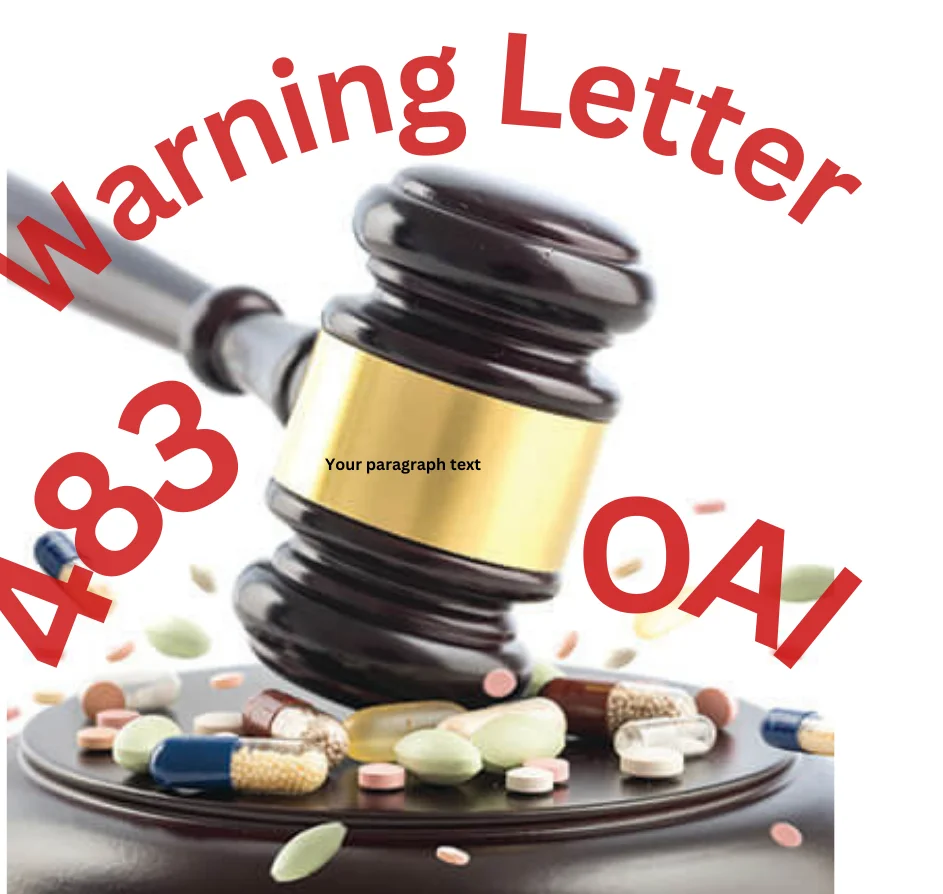

Discussion forum for Pharma Quality events, Regulatory Actions
Warning letters, 483s, Recalls, Import Alerts, Audit observations

Warning letters, 483s, Recalls, Import Alerts, Audit observations





Indian API manufacturer Jagsonpal Pharmaceuticals was issued a Warning Letter by the US FDA in February 2025. Jagsonpal is also placed under Import Alert (66-40) by the FDA in January 2025. The Warning Letter highlights serious discrepancies in establishment registration, product listing, and CGMP deviations observed during the FDA inspection. According to the Warning Letter, when FDA investigators arrived at the registered facility on March 15, 2024, they were refused entry and were eventually allowed to enter the facility on March 20, 2024.

Establishment Registration and Drug Listing Violations
Jagsonpal utilized a contract manufacturing organization (CMO) for manufacturing, processing, and packaging activities for an API offered for import into the US. Jagsonpal Pharmaceuticals was registered with the FDA and declared itself as the manufacturer on import records, instead of the actual CMO. According to the FDA Warning Letter, the API did not include the correct manufacturer information in the listing and was not duly listed with the FDA as required by section 510(j) of the FD&C Act, causing the drug to be misbranded. The Warning Letter instructs the firm to include the name of the CMO as the manufacturer.
Jagsonpal has two USDMFs for Trimethoprim and D-Oxyphene, both of which are inactive DMFs. It has an API, Tolnaftate, listed with NDC Code 53934-0009-1. Tolnaftate is an OTC Monograph Drug.
According to the Rajasthan FDA website, Alka Laboratories Pvt Ltd is the bulk drug manufacturing site at the address cited by the FDA in the Warning Letter.
Delaying, Denying, Limiting, or Refusing a Drug Inspection
On March 15, 2024, when the FDA arrived at the registered facility at B-1124, RIICO Industrial Area, Phase-III, Bhiwadi Dist., Alwar, Rajasthan, 301019, India, to conduct an inspection, they were initially refused entry by individuals present at the site. The FDA was eventually permitted to enter the facility on March 20, 2024, but access to requested documents was still limited during the inspection. Complete analytical data, equipment logbooks, and change control documents were not provided to FDA investigators upon request. Representatives from both Jagsonpal and the CMO were present during these requests. Under section 501(j) of the FD&C Act, when an owner, operator, or agent delays, denies, limits, or refuses an inspection, the drugs may be deemed adulterated. Refusal to allow FDA investigators access to the facility is a serious violation, as it can hinder regulatory oversight and compromise drug quality and safety.
cGMP Violations
Jagsonpal personnel did not adequately ensure that process validation was completed by the CMO, master production instructions were complete, and compendial methods used to analyze the product were appropriately verified as suitable for their intended use. An agreement between Jagsonpal and the CMO defined the responsibilities of each party, but according to the FDA regulations, regardless of such agreements, contractors are extensions of the manufacturer, and the manufacturer is responsible for the quality of the drugs.
Facility registration and Drug Listing requirements
The FD&C Act 510 and 21 CFR Part 207 delineate the registration requirements for establishments and the drug listing requirements:
In summary, under a Contract Manufacturing Arrangement, a key point for a Company is to decide whether it will register as a Manufacturer or a Private Label Distributor. When a company registers as a Manufacturer, they become responsible for compliance with drug establishment registration and drug listing requirements as well as CGMP requirements for the manufacture of drugs. The Manufacturer must ensure the FDA is allowed to inspect the contract manufacturing site. Regardless of any agreements with the contract manufacturer, the Company is responsible for compliance with cGMP requirements for drug manufacture (FDA 21 CFR Part 210, 211). If the contract manufacturing site delays, denies, limits, or refuses an inspection, the registered Manufacturer is held accountable, and the drugs may be deemed adulterated under section 501(j) of the FD&C Act.
If the company decides to act solely as a Private Label Distributor (PLD) and contract the manufacturing of the drug to another site, the manufacturing site must register with the FDA. The manufacturing site should list the drug with an NDC number using its own Labeler code and the Labeler code of the private label distributor. In this case, the manufacturing site is responsible for drug establishment registration, drug listing requirements, and CGMP requirements for the manufacture of drugs, irrespective of any agreement with the company that has contracted the manufacturing to it. The Private Label Distributor needs to obtain a Labeler code and also list the product it distributes under its Labeler code.
One more insight from the Warning Letter is that even if a drug or API follows an OTC monograph and does not require an NDA, ANDA, or DMF, the manufacture of the drug should be in compliance with CGMPs. If such products are imported or offered for import into the US, the FDA can conduct CGMP inspections at facilities manufacturing such OTC monograph drugs even though they do not have an ANDA or DMF.
Leave a Comment
You must be logged in to post a comment.